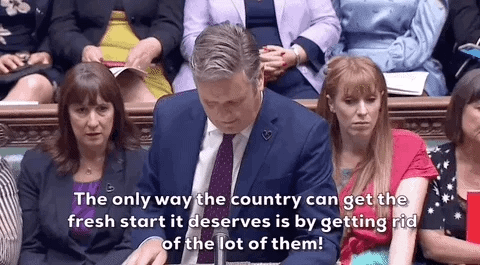Democracy Dies In Dullness. The End of Doing Well By Doing Good. Billionaire Legacy Laundering. Plus more! #215
Grüezi! I’m Adrian Monck – welcome!
–––
1️⃣ Democracy Dies In Dullness
What political promises tell you about democratic choice.
I first met Keir Starmer in 1986. Today, I’m heading to the UK to vote and – by tomorrow morning – he’ll likely be Britain’s prime minister. Britons will get a principled and conscientious leader, committed t…




